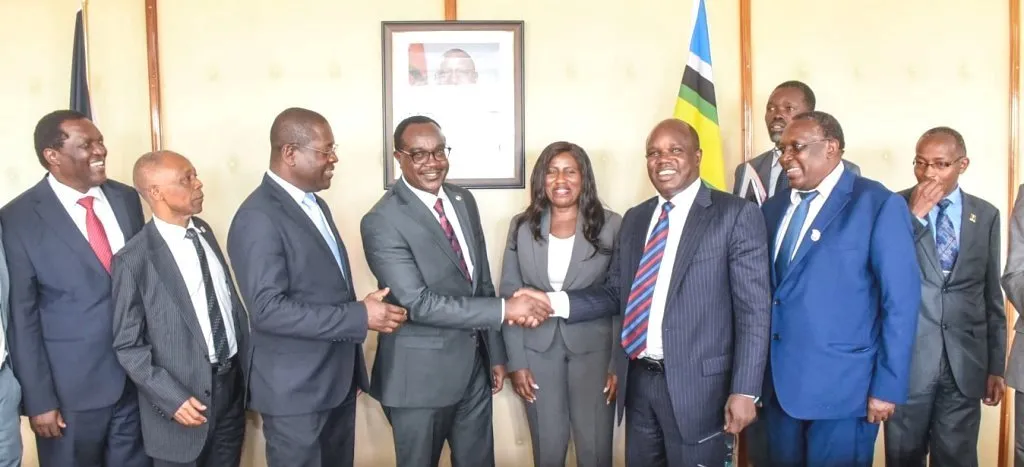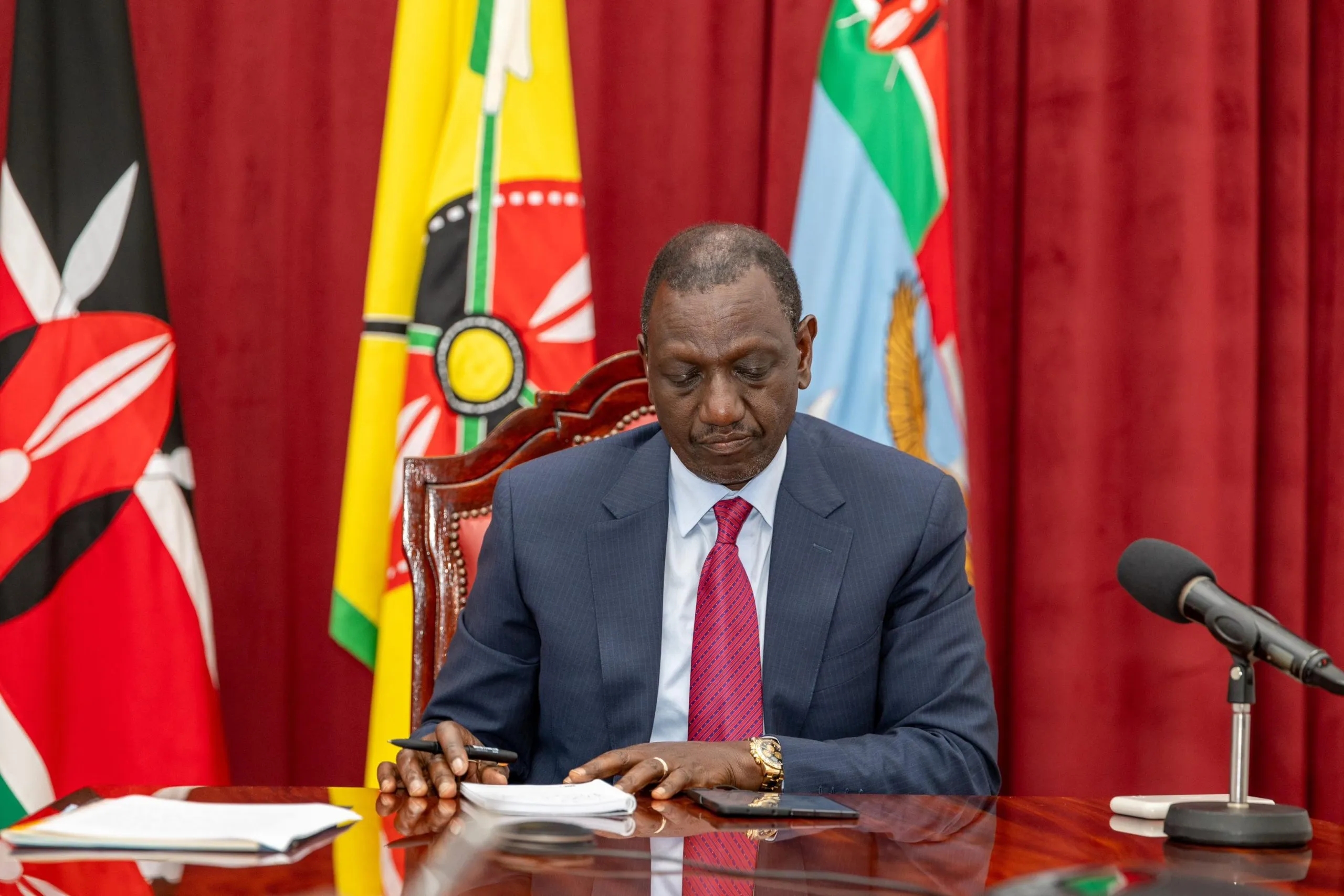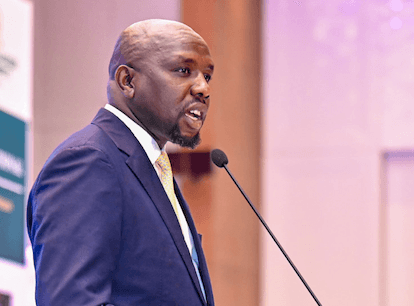
 Education Cabinet Secretary Julius Ogamba (forth left) with Principal Secretary Beatrice Inyangala and University staff unions during a past meeting/COURTESY
Education Cabinet Secretary Julius Ogamba (forth left) with Principal Secretary Beatrice Inyangala and University staff unions during a past meeting/COURTESYEducation Cabinet Secretary Julius Ogamba is this morning locked in a high-stakes closed-door meeting with leaders of public university unions as the government races to end the ongoing strike that has crippled learning across the country.
The meeting, convened by Ogamba, began at 8am at Jogoo House and brings together top officials from the University Academic Staff Union (UASU), the Inter-Public Universities Councils Consultative Forum (IPUCCF), the Kenya Universities Staff Union (KUSU), and KUDEIHA.
The parties were expected to jointly address journalists after the meeting.
“We cordially invite members of the press for a briefing this morning at 9am at Jogoo House, 10th floor,” read a ministry invite sent out earlier.
The meeting follows a tense but promising session with the National Assembly Education Committee yesterday, where unions signaled they were open to compromise, but only if the government meets key demands.
UASU Secretary General Constantine Wasonga told MPs the union would convene its members within 48 hours to reconsider elements of the industrial action, a rare softening of stance after weeks of stalemate.
However, Wasonga demanded a formal apology from the Ministry of Education over what union officials termed intimidation of striking staff.
He also insisted on an 80:20 payment plan for arrears, 80 percent immediately and the balance later, rejecting the government's earlier 50:50 proposal.
“We cannot accept an arrangement that results in recurring strikes every time there's a phase of payment,” Wasonga told lawmakers.
This, as he warned that partial settlement without clear timelines would only fuel more disruption.
KUSU Secretary General Charles Mukhwaya took issue with university leadership, accusing vice-chancellors of poor planning and failure to budget for CBAs, which he said contributed to the stalemate.
He urged Parliament to press universities to improve governance and financial management.
The unions further demanded immediate commencement of negotiations for the 2025-2029 CBA, while insisting that full implementation of the current and previous agreements was non-negotiable.
Committee Chair Julius Melly urged both parties to find middle ground, warning that prolonged closure of universities threatened the academic calendar, research programmes and graduation timelines.
The strike has disrupted teaching and administrative work in public universities, leaving thousands of students idle or stranded.
Several institutions have postponed exams, halted lessons, or advised students to remain off-campus until further notice.
“We are stuck, no classes, no guidance, and no clarity. It's stressful,” said a third-year student at the University of Nairobi.
With unions showing softer rhetoric in Parliament but standing firm on key financial demands, today’s meeting is seen as decisive.
Officials at Jogoo House remained guarded, but multiple sources hinted at a possible compromise being drafted.
If the talks collapse, union leaders have warned of escalating the strike and potentially mobilising street demonstrations.
Last week, Treasury approved a phased settlement plan for the Sh7.76 billion arrears owed to university staff under the 2017-21 CBAs.
In a letter addressed to Higher Education Principal Secretary Beatrice Inyangala, Treasury Cabinet Secretary John Mbadi confirmed concurrence with a proposal by the Ministry of Education to clear the arrears in three instalments over three financial years.
The approval, Mbadi said, follows guidance from the Salaries and Remuneration Commission (SRC) and sustained pressure from university unions who have been pushing for full implementation of the CBA.
According to the schedule, the government was to release Sh2.16 billion in the 2025-26 financial year, followed by Sh2.80 billion in 2026-27 and another Sh2.80 billion in 2027-28.
The Treasury said the first tranche will be funded from an already approved supplementary allocation of Sh23.6 billion to the Ministry of Education.
“We acknowledge the very tight fiscal framework in which we are operating and also note that the matter is significant and has resulted in near total disruption of operations and learning in all our public universities,” Mbadi stated in the communication.



















